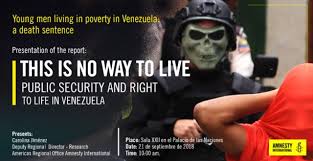This month we have good news from Uruguay and four Urgent Actions (Colombia 2, Venezuela and Ecuador 1 each). We report on the possible consequences for human rights of the newly elected presidents of Brazil and Colombia and the continued harassment, threats and killings of environmental rights defenders and indigenous people in Colombia, Chile and Ecuador.
COLOMBIA
Amnesty International has issued an Urgent Action on behalf of the Wayúu indigenous people of La Guajra department. The National Indigenous Organization of Colombia reports that on 10 October several threatening pamphlets against Wayúu indigenous organizations defending human rights were found on the streets and railroad tracks of Uribia in the department of La Guajira. The pamphlets state that organizations defending human rights in the department of La Guajira “hinder the development of the country” and threaten that they will be attacked. Please download the UA here and write to the authorities.
AI has also issued an Urgent Action on behalf of Alfamir Castillo, a member of the Committee of Women Sugar Cane Harvesters. In the past 2 weeks she has received death threats. Alfamir is seeking justice into the extrajudicial execution of her son Darbey Mosquera Castillo by members of the Counter Guerrilla Battalion 57 Martires de Puerres of the VIII Brigade of the Colombian army. This extrajudicial execution was part of the Colombian “false positives” scandal, in which members of the armed forces unlawfully killed thousands of civilians, most of whom were presented as “guerrilla killed in combat”. Please write to the authorities in the attachment.
Amnesty welcomes a new decision by the Constitutional Court on abortion rights. Prior to 2006, abortion was illegal in Colombia. Since 2006, abortion in Colombia is legal in the following circumstances:
- The continuation of the pregnancy constitutes a danger to the life or health of the mother;
- The existence of life-threatening foetal malformations;
- The pregnancy is the result of rape, non-consensual artificial insemination or incest.
However, clinics raise barriers to avoid complying with the law. Several organisations, including an amicus curiae brief by Amnesty International, contested this practice. The Constitutional Court maintained its 2006 ruling on abortion, adding that Congress should legislate to eliminate the barriers that some clinics use to prevent legal abortions and to ensure that women have access to the health system for legal abortions. [Read more…]



